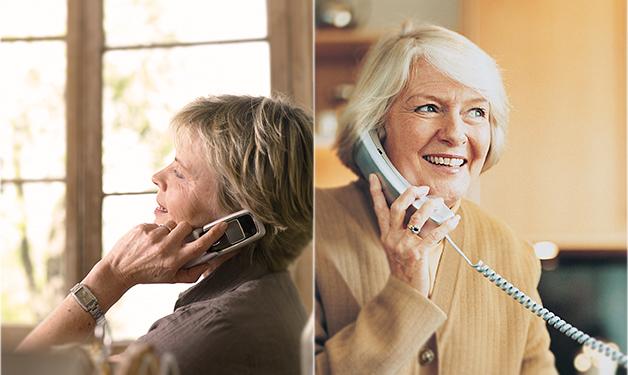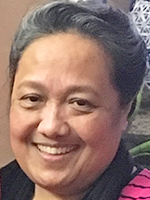
“I say yes to participating in research because hearing information from someone who knows the research is helpful for managing your health.”
– Floria McDonald, Vancouver
Managing diabetes can be a difficult and isolating experience for many, especially when they feel like they are facing it on their own.
For nearly 20 years, Vancouver resident Floria McDonald has largely been managing her type 2 diabetes through medications. Now, McDonald is participating in a unique peer-to-peer study that makes her accountable to another person to follow through on strategies that lower her blood sugar and is opening her eyes to better ways to manage the disease.
“Having a mentor is really important to me because I want to be accountable to someone. I can show them that I can do it,” says McDonald, who works as a nanny.

Designed by Vancouver Coastal Health Research Institute scientist Dr. Tricia Tang, the Clinic to Community (C2C) study is investigating whether diabetes patients can improve their glycemic control and quality of life in the short and long term when paired with a peer leader whom they have regular telephone contact with over 12 months.
“We’ve found in previous studies that peer support can help diabetes patients improve their HbA1c–which is the test that tells us how well they are managing their diabetes,” says Dr. Tang, an associate professor in the Division of Endocrinology in the Faculty of Medicine at the University of British Columbia. “I chose to focus on patients who come through specialty care settings such as endocrinology clinics and diabetes centres because they often are newly diagnosed or at highest risk.”
The study matches a patient with type 2 diabetes one-to-one with a peer leader based on preferences such as gender and geographic proximity. All peer leaders are required to have type 2 diabetes under good control and complete 30 hours of training on behaviour modification strategies, basic motivational interviewing skills, and empowerment-based communication. Each patient is given a workbook containing 40 different self-management activities related to lifestyle change, personal motivation, nutrition, exercise, coping with stress, and other core diabetes education topics.

Patients and their peer leader initially meet in person, giving the peer leader the opportunity to explore his/her personal motivation for making lifestyle changes, teach the patient how to use a glucose meter, and provide them with self-management tools (e.g., portion plate, workbook). All subsequent encounters occur over the phone. For the first three months of the study, the pair talks once a week, and for the remaining nine months they talk bi-weekly.

“We’re really trying to create an emotional connection and understand what motivates each individual because they’re all different,” says Dr. Tang. “And the great thing about this is that there’s no set curriculum to follow; it wraps around the participant and their interests.”
For McDonald, the weekly phone calls have been invaluable. Her blood sugar has lowered enough that her endocrinologist decreased the dosage of one of her medications.
“Every Monday for the first three months my ‘mentor’ called me to ask how I’m doing, how my blood sugar is and what I’ve done to lower it. I want someone to ask me those kinds of questions–it keeps me responsible,” she says. “Having a peer partner has helped me a lot and it gives me a better idea of how to look after myself. I’m a single mom and my daughter is 16 years old and I don’t want her to develop diabetes.”
McDonald is now offering a similar type of mentorship to her brother who also has type 2 diabetes. “Other people with diabetes should also get this kind of support. I've learned that diabetes is not something you can neglect.”
THIS IS ONE PATIENT’S STORY OF PARTICIPATING IN A CLINICAL TRIAL. YOUR EXPERIENCE MAY DIFFER. LEARN MORE ABOUT CLINICAL TRIALS BEFORE PARTICIPATING.


